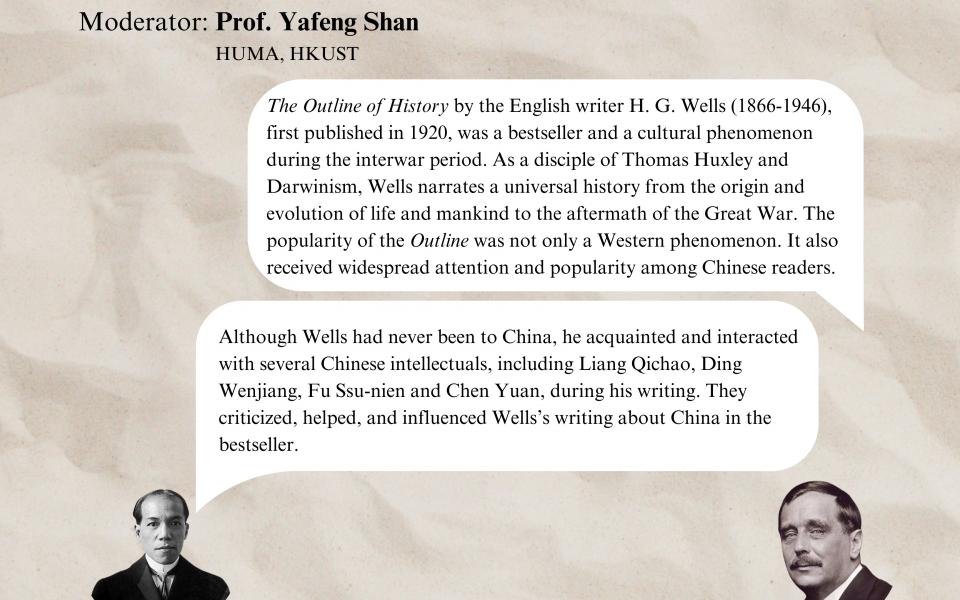Abstract
The Outline of History by the English writer H. G. Wells (1866-1946), first published in 1920, was a bestseller and a cultural phenomenon during the interwar period. As a disciple of Thomas Huxley and Darwinism, Wells narrates a universal history from the origin and evolution of life and mankind to the aftermath of the Great War. The popularity of the Outline was not only a Western phenomenon. It also received widespread attention and popularity among Chinese readers. Although Wells had never been to China, he acquainted and interacted with several Chinese intellectuals, including Liang Qichao, Ding Wenjiang, Fu Ssunien and Chen Yuan, during his writing. They criticized, helped, and influenced Wells’s writing about China in the bestseller. In this presentation, I will use archival materials from the University of Illinois Library collections, such as correspondence between Chinese intellectuals and Wells, to reconstruct the details of interactions between Wells and his Chinese friends. They also reveal Well’s evolutionary epic of human history and cultural legacy in a wider global context.
Bio
Hsiang-Fu Huang is Associate Professor in the Faculty of History at Nankai University in Tianjin, China. Before joining Nankai in 2019, he was a postdoctoral research fellow at the Institute of Modern History, Academia Sinica in Taipei, Taiwan, between 2016 and 2018. He received PhD in History and Philosophy of Science by the University College London (UCL) in 2015. His research interests focus on the history of popular science and representations of science in culture. He has published several journal articles on popular astronomy lecturing in nineteenth-century Britain and the science coverage of The Ladies’ Journal (Funü zazhi) in early twentieth-century China. His latest research project is about the circulation and reception of H. G. Wells’s Outline of History in China. He is also working on a book project of transforming his dissertation into a monograph, which is under contract with the University of Pittsburgh Press.
Moderator: Prof. Yafeng Shan
Division of Humanities, HKUST
